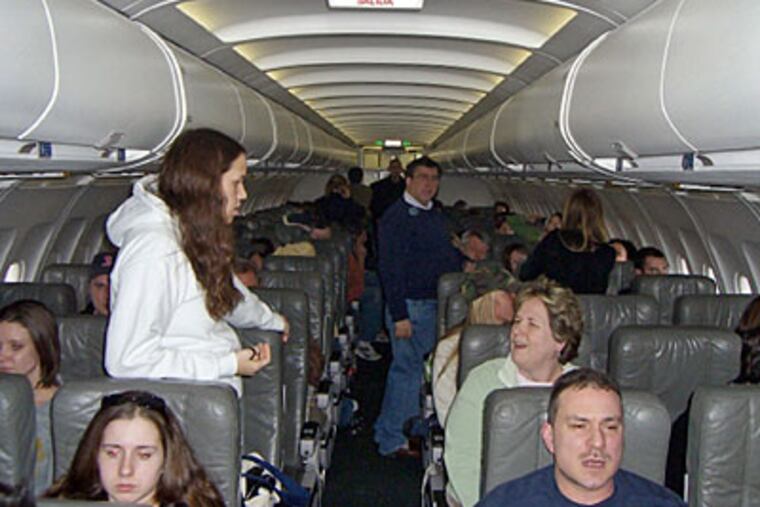Editorial: No longer flying blind
Just as the holiday travel crush begins, there is finally some good news for airline passengers. The Obama administration on Monday ordered the airline industry to release passengers from any airplane that has been stranded on a tarmac for three hours. It's a standard of customer respect that airlines have failed to follow voluntarily, despite years of promises.

Just as the holiday travel crush begins, there is finally some good news for airline passengers.
The Obama administration on Monday ordered the airline industry to release passengers from any airplane that has been stranded on a tarmac for three hours. It's a standard of customer respect that airlines have failed to follow voluntarily, despite years of promises.
"Airline passengers have rights, and these new rules will require airlines to live up to their obligation to treat their customers fairly," said Transportation Secretary Ray LaHood.
The new regulations require domestic carriers to allow passengers to disembark after three hours on board a delayed flight. The only exceptions are for safety, security, or if returning to the terminal would disrupt airport operations.
Airlines also will be required to provide food and water for passengers within two hours of a plane's being delayed on a tarmac. And they must maintain working toilets.
This so-called "bill of rights" for passengers has been a long time in coming. Airlines have pleaded with Congress not to impose such rules. But in the first six months of this year, 613 planes were delayed on tarmacs for more than three hours, with their passengers essentially held hostage.
The examples of stranded-passenger horror stories have continued despite the industry's pledges to improve. Last month, the Transportation Department fined Continental Airlines, ExpressJet Airlines, and Mesaba Airlines $175,000 for a nearly six-hour tarmac delay in Rochester, Minn.
On Aug. 8, a Continental Express flight to Minneapolis was diverted to Rochester due to thunderstorms. Forty-seven passengers were kept overnight in the plane with wailing children and an overflowing toilet. Mesaba employees refused to allow them into the closed airport terminal.
In February 2007, JetBlue Airways left planes full of passengers on a runway at Kennedy International Airport in New York for up to 11 hours in a snow and ice storm. Philadelphia International has had its share of tarmac delays, too.
Even after a long string of such nightmares, some airlines had failed to adopt their own policies on holding passengers aboard. And there was little leverage for enforcing the policies of those airlines that did develop guidelines.
Now, airlines who violate the three-hour limit will face fines of $27,500 per passenger per violation. That should be enough to get their attention.
Airlines say forcing planes to return to gates could cause more problems than it solves, and result in more canceled flights. If so, it's an indication that those airlines and airports aren't being managed properly.
The new regulations will go into effect in 120 days. It's a long-overdue action that will give passengers some recourse when airlines treat them like livestock.